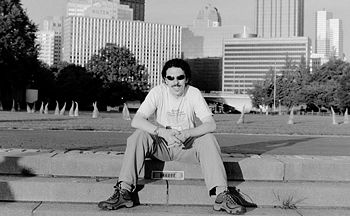Matt's Home Page
To know more about me, you can download my English CV which is periodically updated online or you can just keep viewing this website. The CV includes the full list of my publications, but you can find the on in my Google Scholar profile.
Matteo Matteucci ("laurea" degree 1999, MS 2002, Phd 2003) is an Associate Professor at the Politecnico di Milano. Interested in Robotics and Algorithms for Machine Learning (a.k.a. Pattern Recognition, Knowledge Discovering, Data Mining, Soft Computing, etc.), in 2002 he got a Master of Science in Knowledge Discovery and Data Mining at Carnegie Mellon University (Pittsburgh, PA), and in 2003 a PhD in Computer Engineering and Automation at the Politecnico di Milano. He is actually working in both Robotics and Machine Learning, mainly applying, in a practical way, techniques for adaptation and learning to autonomous robotics systems.His research is focused on robot control architectures, middleware for robot integration, reactive robot control, computer vision, adaptive color models, robust tracking for video surveillance, behavior modeling, and learning machines (i.e., neural network, decision trees, mixture models, etc.). Along with the line of incremental map building and localization in unknown environments, he developed, in collaboration with the Universita' degli Studi Milano-Bicocca, a complete 6DoF SLAM system based on trinocular vision that uses line segments in the environment, hierarchical map decomposition and statistical measure modeling. In particular, he has applied his background in statistics and data modeling to various aspects of localization and Simultaneous Localization And Mapping (a.k.a. SLAM) especially regarding trinocular vision error modeling, catadioptric cameras, data association and odometry.
He has applied learning methods to different industrial and accademic applications, becoming a reference source for this w.r.t. the local research community. Bayesian approaches to model adaptation and learning, development of neural models from biological signals (e.g., age prediction from heart rate variability, sleep staging with HMM, obstrusive sleep apnea recognition, lung cancer diagnosis from breath analisis), adaptive color modeling, augmented and alternative language models for user support systems, adaptive models for traffic prediction optimization and modeling are just few examples of his activity in complex system modeling.
Since 2001, he partecipates to the Milan Robocup Team (MRT). The MRT is a Robocup team of six soccer playing robots (both holonomic and non-holonomic), equipped with specifically designed panoramic sensors, color classification algorithms that can adapt classifcation to changing light conditions, and a conceptual model to integrate robot perception with information coming from teammates. The behavior of the robot is implemented in BRIAN, a system able to manage the interaction among fuzzy behavioral modules through a composition mechanism that is also influenced by conceptual contributes coming from a higher level scheduler. The developed software architecture consists of different modules independently running (in principle also on different machines) and interacting through a middleware that matches the needs of soft real time, physical distribution, and dynamic networking, typical of this application. Technologies here developed are re-used in many different robotic applications.
He is part of the Technical Committee of several Robotics and Artifical Intelligence conferences, and reviewer for international journals on robotics and soft computing. He has been the coordinator of the RAWSEEDS project an FP6 Specific Support Action to develop a benchmark toolkit for SLAM. Now he is coordinating the PRIN 2009 project ROAMFREE: Robust Odometry Applying Multisensor Fusion to Reduce Estimation Errors.
